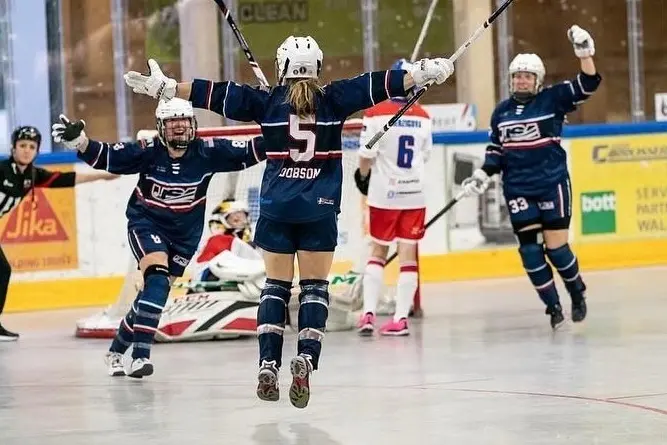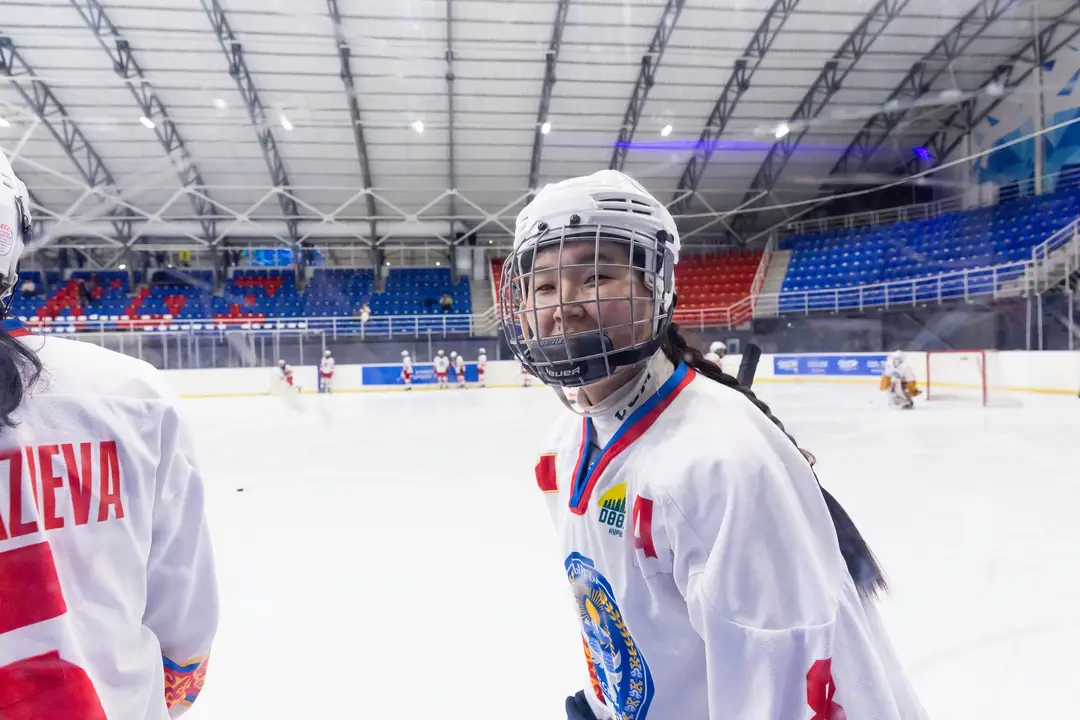
Have you already decided to play hockey abroad next season? Or are you still uncertain if playing abroad is something that you want to do? No matter where you’re at, check out these seven tips from four players with overseas experience for adjusting to life living and playing hockey abroad:
1) Ask questions and do your research.
“Before we got here, we did our research on the team, asked all the important questions to the coach (no question is stupid – believe us, we asked them all!). We were also in touch with last season’s imports, so they were able to give us more information on the behind the scenes aspect of the team.” (Kayla Campero, Planegg Penguins, Germany)
“Anywhere you end up in Europe (or overseas in general) will likely be organized differently than your college team. This means practices, games, and even the team itself may work differently … In order to understand the team you are going to play for, make sure to ask any questions you may have.” (Emily Snodgrass, Bolzano Eagles, Italy)
“I think it’s important to research the country before you go, so you don’t arrive in complete ignorance to norms, history, language, etc. I would also read up on culture shock and its stages, because you’re going to go through them!” (Chelsa Budd, HC Slavia Praha, Czech Republic)
2) Make plans for the time you will be spending outside of hockey.
“Make sure you discuss with your team if you’ll be working, and if they arrange for a job for you. In Bolzano, players don’t usually work, and so I have spent my time taking an online course and exploring Italy. You’ll need something to fill the days, and I recommend figuring that out before you come overseas.” (Snodgrass)
3) Pack light.
“You accumulate so many clothes and extra things here – plus anything you don’t bring from home is easily bought. Ask your owner if they will provide any hockey gear so you don’t have to bring it all – potentially pack 2 pairs of skates, you never want to be left with just one pair if it breaks.” (Campero)
 4) Explore and embrace the country and culture you live and play in.
4) Explore and embrace the country and culture you live and play in.
“Get so lost you need to ask for directions 100 times. We had a map and still walked by one street 4 times before realizing it was right in front of us.” (Campero)
“Be ready to embrace the differences between the North American and European lifestyles. Day to day things like grocery shopping or navigating the new city may seem daunting at first but soon they will be second nature.” (Sarah MacDonnell, Planegg Penguins, Germany)
5) Get to know your teammates.
“They have so many good tips on life in Munich (or wherever you are) and will make you feel like a local much faster.” (Campero)
“Ask your teammates any questions you have! And they also love when you try and learn some of the language.” (MacDonnell)
6) Also get to know people from outside your hockey team.
“Find an ex-pat community or a church community or people who share interests similar to yours — these people will give you perspective when you need it and its an outlet that’s external to the team. Building a community around you will make your experience much better and keep you healthier while you’re living far from home.” (Budd)
7) Anxiety is normal and is okay. This experience will be fun, but it will be challenging too.
“I didn’t know what to expect, and the pace is much different from college hockey, but after a few weeks you get to know what’s being asked of you, what you’re expected to do, and how the games and practices feel.” (Campero)
“Some days when we were feeling rough (there were four of us Canadians in my last year), we’d go get McDonalds, drive by the castle, listen to music from North America, and remind ourselves that life at home has hard parts too!” (Budd)
“When I landed in Italy, my first few days were spent wondering what on Earth I had gotten myself into. That worry is totally normal, and will fade away. Once I got a working phone, could talk to friends and family, and was more comfortable getting around by myself, things got much easier.” (Snodgrass)
For more information on playing hockey abroad, visit whlprofile.com or email [email protected]
[adrotate group=”1″]
Related Articles
Categories
Recent Posts
[adrotate group=”2″]




